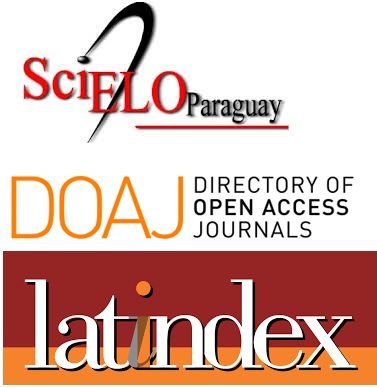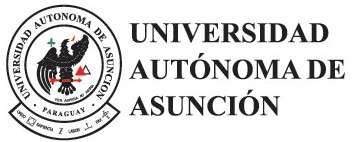Efectos del confinamiento en las emociones de los niños inmigrantes: análisis desde la inteligencia emocional
Palabras clave:
primera infancia, competencias, migración, virus, inteligenciaResumen
Las emociones han demostrado tener un papel trascendental en el desarrollo humano y en la construcción de aprendizajes durante las diferentes etapas del ciclo vital. La presente investigación tiene por objetivo evaluar los efectos del confinamiento debido al COVID-19 sobre las emociones de los niños inmigrantes. Se trata de un análisis desde la inteligencia emocional, en el que se empleó un diseño evaluativo de corte no experimental, desarrollado bajo un enfoque cuantitativo. Participaron en el estudio 56 individuos: 24 niños y 32 niñas inmigrantes, de 4 a 5 años, que cursan Educación Parvularia. Los principales resultados señalan que el dominio de competencias emocionales se aleja de la idoneidad sugerida por la literatura especializada, la cual mantiene que el conocimiento y manejo de este tipo de competencias supone la consolidación del éxito personal en todos los contextos del accionar humano. Se concluye que los niños y las niñas en confinamiento presentan un uso inadecuado de sus emociones en forma inconsciente, de allí que surja la necesidad de generar conocimientos sobre la importancia del manejo eficaz de las competencias emocionales, ajustándose a los requerimientos de la realidad actual (confinamiento actual, y vida post pandemia).Citas
Acevedo, S. (2013). Coaching Educativo y Formación Basada en Competencias. [Tesis para optar a Especialista, Universidad Rafael Urdaneta]. Archivo digital. https://studylib.es/doc/7437246/coaching-educativo-y-formaci%C3%B3n-basada-en-competencias-del Ahmed, F., Ahmed, N., Pissarides, C., & Stiglitz, J. (2020). Why inequality could spread COVID-19. The Lancet, 5(5), 240.
https://www.thelancet.com/journals/lanpub/article/PIIS2468-2667(20)30085-2/fulltext
Bar-On, R. (2006). The Bar-On Model of Emotional-Social Intelligence (ESI).). Psicothema, 18(1) 13-25. http://www.eiconsortium.org/reprints/bar-on_model_of_emotional-social_intelligence.htm
Bignardi, G., Dalmaijer, E., Anwyl-Irvine, A., Smith, T., Siugzdaite, R., Uh, S., & Astle, D. (2020). Longitudinal increases in childhood depression symptoms during the COVID-19 lockdown. Archivies of Disease in Childhood, 1-7. https://pubmed.ncbi.nlm.nih.gov/33298552 Bisquerra, R. y Pérez, N. (2007). Las competencias emocionales. Revista Educación XXI, 10 (1), 61-82.
http://revistas.uned.es/index.php/educacionXX1/article/view/297 Bisquerra, R. y Pérez, N. (2012). Educación emocional: estrategias para su puesta en práctica. Avances en Supervisión Educativa, 16, 1-11.
https://avances.adide.org/index.php/ase/article/view/502/342 Blewitt, C., Fuller-Tyszkiewicz, M., Nolan, A., Bergmeier, H., Vicary, D., Huang, T., & Skouteris, H. (2017). Social and emotional learning associated with universal curriculum-based interventions in early childhood education and care centers. A systematic review and meta-analysis. JAMA network open, 1(8), 1-19.
https://jamanetwork.com/journals/jamanetworkopen/fullarticle/2717566 Brackett, M. (2018). The emotional intelligence we owe students and educators. Educational Leadership, 76(2), 12-18.
https://www.salzburgglobal.org/fileadmin/user_upload/Documents/2010-2019/2018/Session_603/Brackett_2018_Educational_Leadership.pdf Brouzos, A., Misailidi, P., & Hadjimattheou, A. (2014). Associations Between Emotional Intelligence, Socio-Emotional Adjustment, and Academic Achievement in Childhood: The Influence of Age. Canadian Journal of School Psychology, 29(2), 83-99.
https://journals.sagepub.com/doi/10.1177/0829573514521976 Carter-Thuillier, B., y Gallardo-Fuentes, F. (2021). Emociones, interculturalidad y Educación Física. Tándem, 71(1), 21-25.
https://www.grao.com/es/producto/emociones-interculturalidad-y-educacion-fisica-ta07199414 Colverd, S., & Hodgkin, B. (2011). Developing Emotional Intelligence in the Primary School. Abingdon: Routledge.
Comisión Económica para América Latina y el Caribe. (2020). El desafío social en tiempos del COVID-19.
https://repositorio.cepal.org/handle/11362/45527
Corcoran, R., Cheung, A., Kim, E., & Xie, C. (2018). Effective universal school-based social and emotional learning programs for improving academic achievement: A systematic review and meta-analysis of 50 years of research. Educational Research Review, 25(1), 56-72. https://www.sciencedirect.com/science/article/abs/pii/S1747938X17300611?via%3Dihub Flores, M y Rivas, L. (2005). Orígenes, evolución, y modelos de inteligencia emocional. Revista Innovar, 15(25), 9-24.
https://www.redalyc.org/pdf/818/81802502.pdf Fragoso, R. (2015). Inteligencia emocional y competencias emocionales en educación superior ¿un mismo concepto? Revista Iberoamericana de Educación Superior, 6(16), 110-125.
http://www.scielo.org.mx/pdf/ries/v6n16/v6n16a6.pdf Goleman, D. (2013). The Brain and Emotional Intelligence. New Insights: Northampton.
Goleman, D., & Boyatzis, E. (2012). Emotional Intelligence Has 12 Elements. Which Do You Need to Work On? Harvard Business Review, 84(2), 1-5. https://hbr.org/2017/02/emotional-intelligence-has-12-elements-which-do-you-need-to-work-on Guil, R., Mestre, J., Gil-Olarte, P., Torre, G. y Zayas, A. (2018). Desarrollo de la inteligencia emocional en la primera infancia: una guía para la intervención. Universitas Psychologica, 7(4), 1-12.
https://revistas.javeriana.edu.co/index.php/revPsycho/article/view/17915
Hajisoteriou, C., Karousiou, C., & Panayiotis, A. (2018). Successful components of school improvement in culturally diverse schools. School Effectiveness and School Improvement, 29(1), 91-112.
https://www.tandfonline.com/doi/full/10.1080/09243453.2017.1385490 Herrera, L., Buitrago, R., & Cerepo, S. (2017). Emotional Intelligence in Colombian Primary School Children. Location and Gender. Universitas Psychologica, 16(3), 165-174.
https://revistas.javeriana.edu.co/index.php/revPsycho/article/view/12057 Human Rights Watch. (2020). El COVID-19 aumenta la xenofobia y el racismo contra los asiáticos en todo el mundo.
Instituto Nacional de Estadística. (2020). Informe estimación de personas extranjeras. Santiago: Ministerio de Economía, Fomento y Turismo. https://www.ine.cl/prensa/2020/03/12/seg%C3%BAn-estimaciones-la-cantidad-de-personas-extranjeras-residentes-habituales-en-chile-bordea-los-1-5-millones-al-31-de-diciembre-de-2019
Kotsou, I., Mikolajczak, M., Heeren, A., Grégoire, J., & Leys, C. (2019). Improving Emotional Intelligence: A Systematic Review of Existing Work and Future Challenges. Emotion Review, 11(2), 151–165. https://journals.sagepub.com/doi/10.1177/1754073917735902
Leasa, M., & Corebima, A., Ibrohim, D., & Suwono, H. (2017). Emotional Intelligence among Auditory, Reading, and Kinesthetic Learning Styles of Elementary School Students in Ambon-Indonesia. International Electronic Journal of Elementary Education, 10(1), 83-91. https://files.eric.ed.gov/fulltext/EJ1156303.pdf
Lehikoinen, A., Ranta-Nikku, E., Mikkonen, J., Kaartinen, J., Penttonen, M., Ahonen, T., & Kiuru, N. (2019). The role of adolescents' temperament in their positive and negative emotions as well as in psychophysiological reactions during achievement situations. Learning and individuals Differences, 69(1), 116-128.
https://jyx.jyu.fi/bitstream/handle/123456789/72281/Lahdelma2020_TheRoleOfAdolescentsAndTheirPa.pdf?sequence=1&isAllowed=y Lerma, H. (2016). Metodología de la Investigación: Propuesta, Anteproyecto y Proyecto. (5. ª ed.). Bogotá: Ecoe Ediciones
Martínez, M. (2015). Siete beneficios de ser empático. Observatorio de Recursos humanos.https://www.observatoriorh.com/motivacion-y-compromiso/7-ventajas-de-ser-empatico-en-el-trabajo.html
Mesa, J. (2015). Inteligencia emocional, rasgos de personalidad e inteligencia psicométrica en adolescentes. [Tesis Doctoral, Universidad de Murcia Facultad de Psicología]. Digitum Biblioteca Universitaria. https://www.tesisenred.net/bitstream/handle/10803/310420/TJRMJ.pdf
Ministerio de Educación de Chile [MINEDUC] (2020, 07 de abril). Orientaciones complementarias por COVID19 Comunidades educativas inclusivas, estudiantes extranjeros y sus familias. MINEDUC. https://migrantes.mineduc.cl/2020/04/07/orientaciones-complementarias-por-covid19-ept/ Montgomery, H., McCrimmon, Climie, E., & Ward, M. (2018). Emotional Intelligence in Atypical populations: Research and School-Based Interventions. En K. Keefer, J. Parker, D. Saklofske (Eds.), Emotional Intelligence in Education: Integrating Research with Practice (pp. 243-288). Cham: Springer. Morrison, T. (2007). Emotional Intelligence, Emotion and Social Work: Context, Characteristics, Complications and Contribution. The British Journal of Social Work, 37(2), 245–263.
https://academic.oup.com/bjsw/article/37/2/245/1705334
Nicodemo, M., Spreghini, M., Manco, M., Sforza, R., & Moreno, G. (2021). Childhood Obesity and COVID-19 Lockdown: Remarks on Eating Habits of Patients Enrolled in a Food-Education Program. Nutrients, 13(1), 383. https://www.mdpi.com/2072-6643/13/2/383 O’Connor, P., Hill, A., Kaya, M., & Martin, B. (2019). The Measurement of Emotional Intelligence: A Critical Review of the Literature and Recommendations for Researchers and Practitioners. Frontiers Psychology, 10(1), 1-19.
Orellana, C. y Orellana, L. (2020). Predictores de síntomas emocionales durante la cuarentena domiciliar por pandemia de COVID-19 en El Salvador. Actualidades en Psicología, 34 (128), 103-120. https://dx.doi.org/10.15517/ap.v34i128.41431
Riquelme, E., Quilaqueo, D., Quintriqueo, S., y Loncón, E. (2016). Predominancia de la educación emocional occidental en contexto indígena: necesidad de una educación culturalmente pertinente. Psicología Escolar e Educacional, 20(3), 523-532. https://www.scielo.br/j/pee/a/SZwBKxdPYXPc4JtQgkdY95j/?lang=es
Ruvalcaba-Romero, Fernández, Salazar-Estrada & gallegos-Guajardo. (2017). Positive emotions, self-esteem, interpersonal relationships and social support as mediators between emotional intelligence and life satisfaction. Journal of Behavior, Health & Social Issues, 9(1), 1-6. https://www.sciencedirect.com/science/article/pii/S2007078017300184
Salas, N., Castillo, D., San Martín, C., Kong, F., Thayer, L., y Huepe, D. (2017). Inmigración en la escuela: caracterización del prejuicio hacia escolares migrantes en Chile. Universitas psychologica, 16(5), 1-15. http://www.scielo.org.co/pdf/rups/v16s5/1657-9267-rups-16-s5-00161.pdf
Salovey, P., Hsee, C. y Mayer, J. (1993). Inteligencia emocional y autorregulación del afecto. Nueva Jersey: Prentice-Hall, Inc.
Smith, M., Herbert, A., Hughes, A., Northstone, K., & Howe, L. (2021). Associations of socioeconomic position and adverse childhood experiences with health-related behaviour changes and changes to employment during the first COVID-19 lockdown in the UK. MedRxiv, 1-34. https://www.medrxiv.org/content/10.1101/2021.05.18.21257397v1.full
Ugarriza, N. y Pajares, L. (2005). La evaluación de la inteligencia emocional a través del inventario de BarOn ICE: NA, en una muestra de niños y adolescentes. Revista de Psicología, (8), 11-58. https://www.redalyc.org/pdf/1471/147112816001.pdf Viguer, P., Cantero, M., & Bañuls, R. (2017). Enhancing emotional intelligence at school: Evaluation of the effectiveness of a two-year intervention program in Spanish pre-adolescents. Personality and Individual Differences, 113, 193-200.
https://www.sciencedirect.com/science/article/abs/pii/S0191886917302064?via%3Dihub
Descargas
Publicado
Cómo citar
Número
Sección
Licencia
La responsabilidad del contenido de los artículos publicados es de competencia exclusiva de los firmantes del artículo y de ninguna manera será atribuible a la Editora o al Comité Editorial de la revista.
Los autores de los artículos son los responsables de la obtención del permiso correspondiente para incluir en su artículo cualquier material publicado en otro lugar. La revista declina cualquier responsabilidad que se derive de la posible falta de permiso en la reproducción de cualquier material.
La Revista se reserva los derechos de autor y la reproducción de los documentos en otros medios impresos y/o electrónicos.
Asimismo en concordancia con la promoción del Acceso Abierto, la revista permite que los lectores lean, descarguen, copien, distribuyan, impriman, busquen o se vinculen a los textos completos de sus artículos y permiten que los lectores los utilicen para cualquier otro propósito legal, sujetos a la licencia CC que defina la Revista



